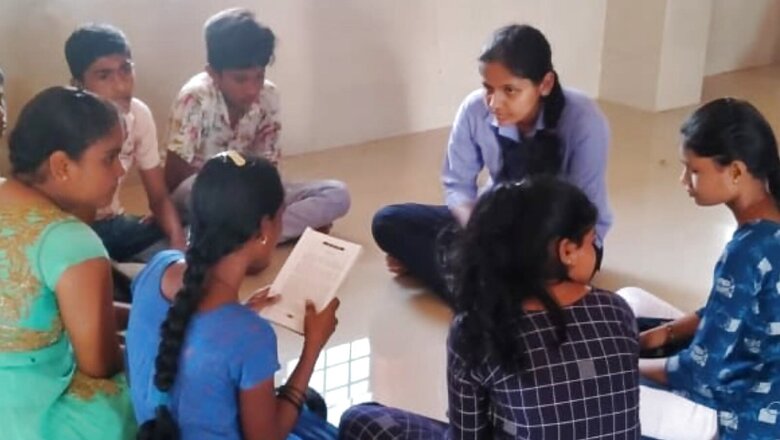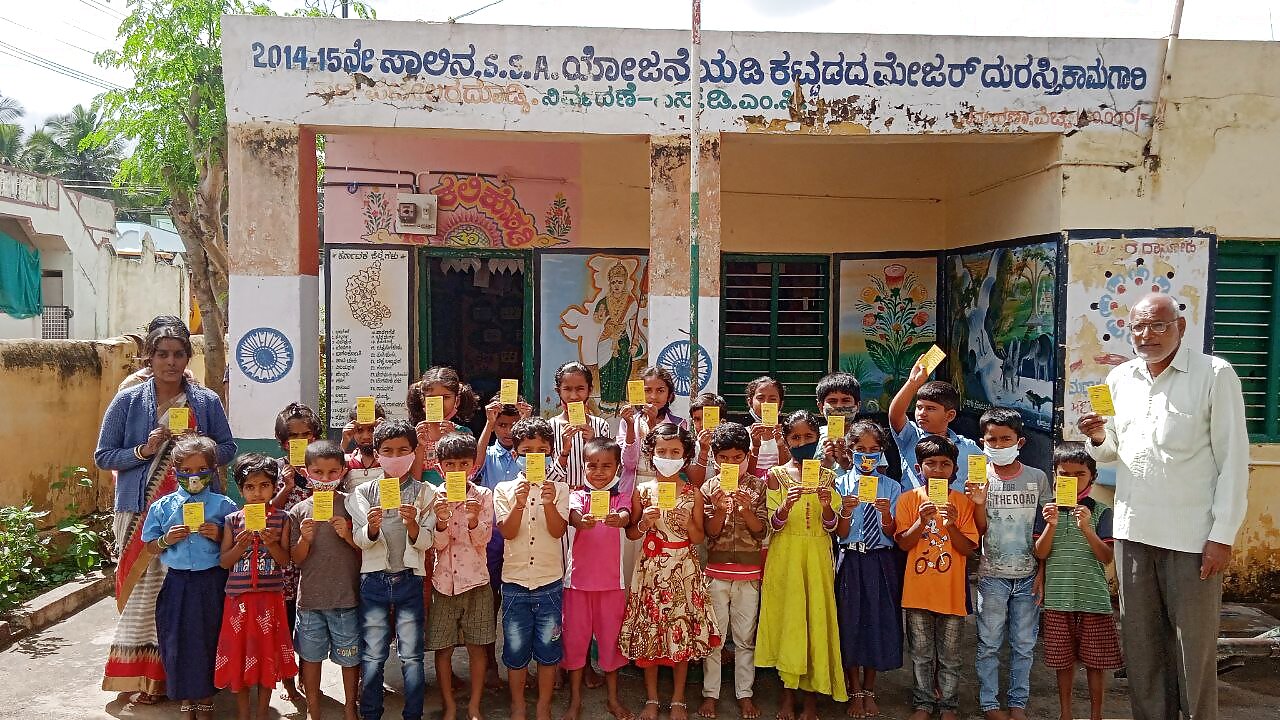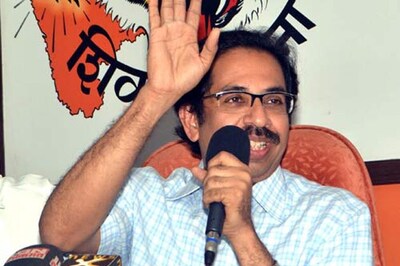
views
Off the dusty tracks in Beedi village in Karnataka’s Belagavi, a colourful building with images of animals and grasslands beckons the young and old to enter its portals and sit around its well — an open-air library that is both welcoming and inspiring has been set up by gram panchayats. Indeed, it is one of the first attempts to revolutionise the idea of rural libraries that has taken off in 5,622 gram panchayats in Karnataka today.
With schools having remained shut almost a year and a half, children across Karnataka could have become disconnected with learning easily. But over the last few months, the rural development department has asked panchayats to step up and step in where schools could not.
Village libraries have been revived with innovative ideas – from book donation drives to extending working hours to starting digital sections and holding sessions on ‘what-did-I-read-today’ for children. With the growing interest and increasing membership, village libraries have become the bridge between children and reading at a time when schools have remained shut.
As Karnataka starts reopening primary schools next week, teachers may be surprised at how children have stayed connected to learning, at least to some extent. Over 10 lakh have enrolled themselves as members in the 5,622 libraries in the state, and the department is hoping that once the reading bug catches on, it would stay with children lifelong.
“Towards the end of last year, we started wondering whether the libraries could play a role in helping children because schools and colleges were closed. And that’s when we thought that we should launch an initiative to really bring children back to libraries — start library-going as a habit, because a library is a safe space, even during the Covid-19 pandemic because you just have to go in, select your book and come out,” says Uma Mahadevan, Principal Secretary of the Rural Development and Panchayat Raj department.

Panchayats were asked to do their own refurbishing to attract crowds — some painted their walls with Worli art, others put up photos of Kannada literary greats to keep children curious. The book donation drives were held in several panchayats where members would go to homes to collect old books. Other panchayats used social media to encourage book donations. Many realised they were attracting a mix of crowds, including those wanting to find story books, graduates who were preparing for competitive exams, others who would read a book because it was new.
“We find that students have formed small little study circles in the library so that they study together, which is a way of expressing the kind of common space they did not have, perhaps at home. They’re able to find that common space within the libraries, not only for studying, but also as intergenerational spaces… the child will come with their grandfather, sometimes grandmother, and the grandfather will be sitting there reading a newspaper while the child is reading a story book or a picture book. It’s a very easy comfortable safe inter-generational space, so that kind of impact is slowly beginning to take shape,” says Mahadevan.
In Rajanukunte, an hour’s drive from Bengaluru, there are captive audiences to 24X7 library – housed next to the police station, and has CCTV coverage, so there is little worry over safety.
Simran Banu, 22, walks into the library religiously every day at 7 am, and stays till 7 in the evening. A UPSC aspirant, Banu says the village librarian goes an extra length to give her access to the books she needs.
“For UPSC, you need more books but they make it available to us free of cost. For every competitive exam you have books, no need to invest more money for this. And my confidence levels are up. At home, if I study, I end up feeling I have studied a lot even if it is just for an hour, but here I see so many others and I keep telling myself, it is not finished, I need to study more,” Banu says.
For her, the library has almost become a second home, just as it has for SR Harikumar, Navya, Naresh and Vijayaraghava.
“Today, we face network issues, lack of books and magazines and no friends to get motivated, but coming here, seeing others prepare, I am motivated… the best part is when we get low confidence, we get time to talk to others. There are seniors, juniors, teachers here (library),” says Harikumar, a defence services exam aspirant.
Rajanukunte is among the 600 digital libraries; if a book is not physically available, it will be freely downloadable from the State Central Library’s database.
Panchayat Development Officer HR Rajesh says with schools having been shut all this while, the department has gone one step further and lent their children’s books to the local schools — after all, even schooling has become DIY (do it yourself) now.
“Depending on the number of children in the primary schools, we have sent across the books to the schools. The children exchange with each other and read. If they feel they are done with that lot, they exchange the books with the nearest school so they have a fresh lot. Because even coming to the library had become difficult for the smaller children during the lockdowns,” says Rajesh.
Mahadevan says the larger plan is to keep the reading habit alive. “We have a plan to continuously upgrade the collection every year, based on books that children, homemakers, or farmers and students, even the elderly would like to read. So, we want everyone to come to the rural library. It’s their space to browse even during the weekends,” Mahadevan says.
Read all the Latest India News here




















Comments
0 comment